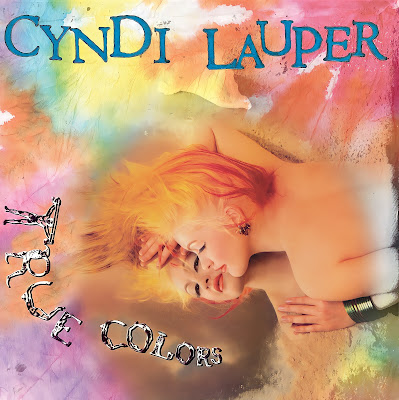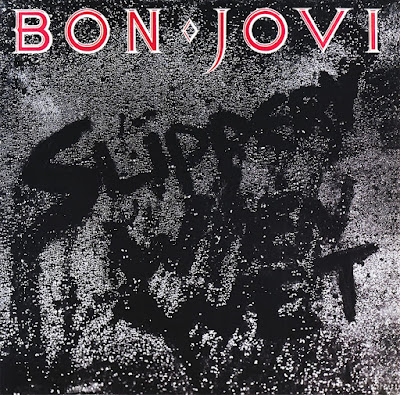October 25, 1986: Cyndi Lauper's "True Colors" hit Number 1 in America.
"True Colors" was written by Billy Steinberg and Tom Kelly, who also wrote Madonna's "Like A Virgin," Heart's "Alone," and Lauper's "I Drove All Night."
(sign up to follow by email)
It was the only original song on the album that Lauper didn't help write. The song is about looking below the surface to see what a person is really like. It took on special meaning in the gay community, which is represented by a rainbow pride flag.
Read more: Songfacts
October 25, 1969: Creedence Clearwater Revival entered Billboard's Hot 100 with "Down on the Corner."
"Down on the Corner" tells the story of a fictional jug band, Willy and the Poor Boys, who were street musicians "playing for nickels, can't be beat."
 |
| Creedence Clearwater Revival |
The name of the jug band was also the name of CCR's fourth straight million-selling album. On the cover, the "band" is seen down on the corner performing to a (very) small crowd outside the Duck Kee Market.
Read more: Songfacts
October 25, 1970: Led Zeppelin's third album, Led Zeppelin III, reached the top of the US album chart.
On their first two albums, Led Zeppelin unleashed a relentless barrage of heavy blues and rockabilly riffs, but Led Zeppelin III provided the band with the necessary room to grow musically.
While there are still a handful of metallic rockers, III is built on a folky, acoustic foundation that gives the music extra depth. And even the rockers aren't as straightforward as before. The galloping "Immigrant Song" is powered by Robert Plant's banshee wail.
Read more: Allmusic
October 25, 1975: Paul Simon issued his fourth solo album, Still Crazy After All These Years.
Still Crazy After All These Years was a musical and lyrical change of pace from his first two LPs, Paul Simon and There Goes Rhymin' Simon. He did do a couple of tracks ("My Little Town" and "Still Crazy After All These Years") with the Muscle Shoals rhythm section that had appeared on Rhymin' Simon and another ("Gone at Last") returned to the gospel style of earlier songs like "Loves Me Like a Rock."
Read more: Allmusic
October 25, 1986: Bon Jovi first moved into the Number 1 position on Billboard's album chart with Slippery When Wet.
Slippery When Wet wasn't just a breakthrough for Bon Jovi; it was a breakthrough for hair metal in general, marking the point where the genre officially entered the mainstream.
The LP was more indebted to pop than metal, though, and the band made no attempt to hide its commercial ambition. The trick paid off as Slippery When Wet became the best-selling album of 1987, beating out contenders like Appetite for Destruction, The Joshua Tree, and Michael Jackson's Bad.
Read more: Allmusic
True Colors
Cyndi Lauper




No comments:
Post a Comment